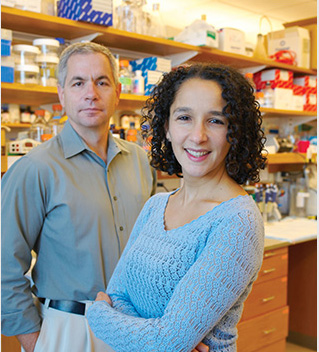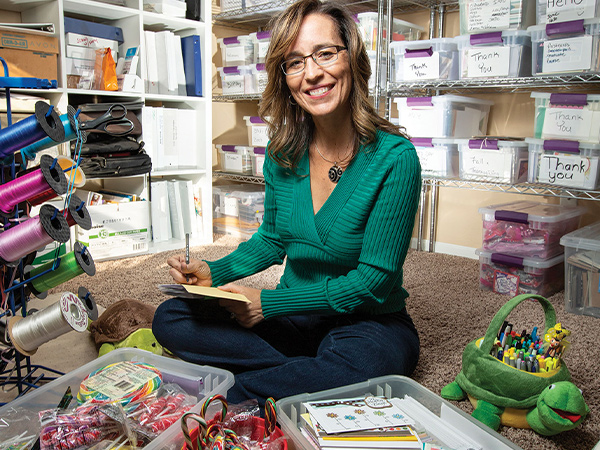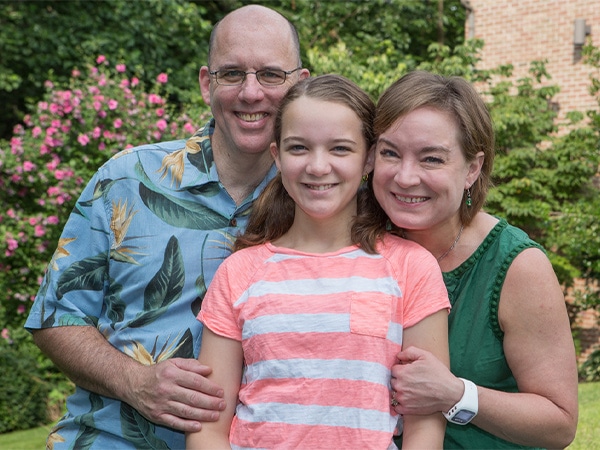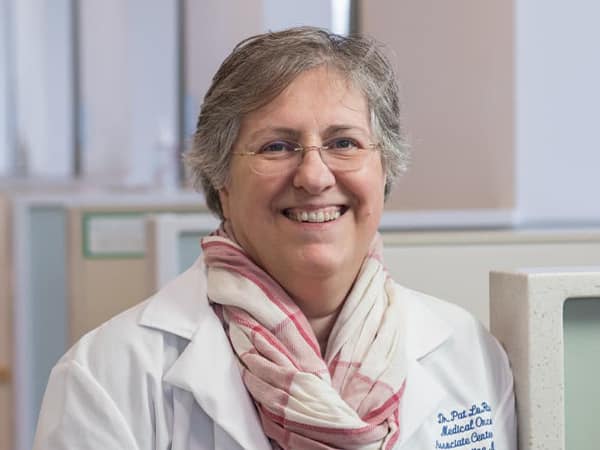Dr. John Maris: Teaming Up to End Childhood Cancer
Dr. John M. Maris of The Children’s Hospital of Philadelphia, leads national efforts to translate basic discoveries into treatments for children with cancer.
As a parent, one of the things that you hope never to hear is a doctor uttering the words, “Your child has cancer.”
Statistically, childhood cancers are rare but devastating diseases – about 1 in 285 children a year in the United States will be diagnosed with some form of pediatric cancer before the age of 20.
John M. Maris, MD, Giulio D’Angio endowed professor of pediatrics at The Children’s Hospital of Philadelphia, is a physician-scientist working not just to improve survival for children with these devastating diseases, but also to enhance their quality of life in adulthood.
“Pediatric cancer research in many ways has played a leading role in the history of cancer research,” explains Dr. Maris. “Many of the early discoveries of how chemotherapy can work to cure cancer were first seen in children with cancer.”
Those early successes lead to a cooperative national scientific effort to improve outcomes.
“What we saw from that was dramatic improvements in survival rates,” Dr. Maris says. “But those of us in the field are very concerned that our progress has plateaued. What we see now is a real opportunity to change that to dramatically again begin to accelerate cure rates and to do that through a much more precise and personalized approach to pediatric cancer.”
Devising New Ways to Treat Neuroblastoma
The focus of Dr. Maris’ research and his clinical practice is neuroblastoma, an often incurable disease that accounts for about 7 percent of U.S. childhood cancers.
He became intrigued with the disease even before entering medical school. He was working in the laboratory of neuroblastoma research pioneer Audrey Evans, MD, who devised one of the first systems for identifying optimal treatments for neuroblastoma patients based on how far their disease had progressed.
After witnessing spectacular technological advances during the 1980s and early 1990s, Dr. Maris decided to focus his own research on harnessing the new technologies to deepen understanding of the genetic abnormalities that cause neuroblastoma. In 1993 he attended the AACR Molecular Biology in Clinical Oncology Workshop to increase his working knowledge of the new technologies.
“Thankfully, neuroblastoma is a rare disease,” says Dr. Maris. “But it causes a high proportion of all childhood cancer deaths. It is enigmatic in that it can be very benign/curable in some patients, but in others it can progress very quickly. We are working to figure out the reason why children develop this disease in the first place, and then why it behaves so differently.”
He continues to use cutting-edge genomic techniques and technologies to devise ways to improve outcomes for patients with neuroblastoma and minimize long-term side effects.
In one initiative that he is spearheading – the Stand Up To Cancer (SU2C) St. Baldrick’s Foundation Dream Team – he is combining his expertise in neuroblastoma genomics with the expertise of other cancer genomics researchers and leading immunotherapeutics researchers to transform outcomes for children with the types of cancer that are currently most difficult to treat, including high-risk neuroblastoma.
“This Dream Team has deep expertise in each of the most lethal pediatric cancers and includes thought leaders in the fields of genomics and immunotherapeutics,” says Dr. Maris. “It is our goal, indeed our expectation, that we will initiate a sustained effort to maximize pediatric cancer cure rates through a genomics-anchored immunotherapeutic program.”
Using Genetic Discoveries to Start New Clinical Trials

A few years ago, Dr. Maris and fellow physician-scientist Yael Moss, MD discovered that for some children with neuroblastoma, abnormalities in a gene called ALK were helping fuel the growth of their cancer.
Similar abnormalities are found in some non-small cell lung cancers, and an ALK-targeted personalized cancer medicine called crizotinib (Xalkori) was approved for the treatment of patients with ALK-fueled non-small cell lung cancer in 2011.
Drs. Maris and Moss, are leading trials testing of crizotinib as a treatment for neuroblastoma.
Testing Potential New Treatments in the Laboratory
Before treatments can be tested in patients, they must be rigorously studied in the laboratory to ensure that there is a strong case for them to be deployed in humans.
Dr. Maris recently reported on two such studies on potential new approaches to treating neuroblastoma in Clinical Cancer Research and Cancer Research, both journals of the American Association for Cancer Research.
In one of these studies, the investigational medicine LEE011, which helps block expansion in cancer cell numbers, slowed the growth of neuroblastomas in mice. This medicine is already being tested in a clinical trial as a potential treatment for neuroblastoma, and it is hoped that the results in mice translate into clinical benefit for children with this devastating disease.
In the other study, a combination of investigational agents slowed the growth of neuroblastomas in mice. While promising, more work needs to be done in the laboratory before this combination of agents can be tested in patients. Dr. Maris’ team is committed to undertaking the necessary studies.
Pairing Genomics With Immunotherapeutics to Tackle Childhood Cancers
As a co-leader of the Pediatric Cancer Dream Team, Dr. Maris is coordinating a spectacular effort to use genomics to identify targets for a form of immunotherapy called CAR T-cell therapy, whereby immune cells called T cells are modified to recognize and eliminate cancer cells.
Although the project began only a year ago, potential new targets have been identified for a number of types of childhood cancer. Most of these potential targets are being studied further in the laboratory to determine how good they might be. Others are almost ready for testing in clinical trials.
“We certainly envision a day,” Dr. Maris says, “where every child who is diagnosed with any cancer will have therapy prescribed based on the host’ – the patient’s – genetic makeup, the tumor’s makeup, and the immune system of that patient.”




